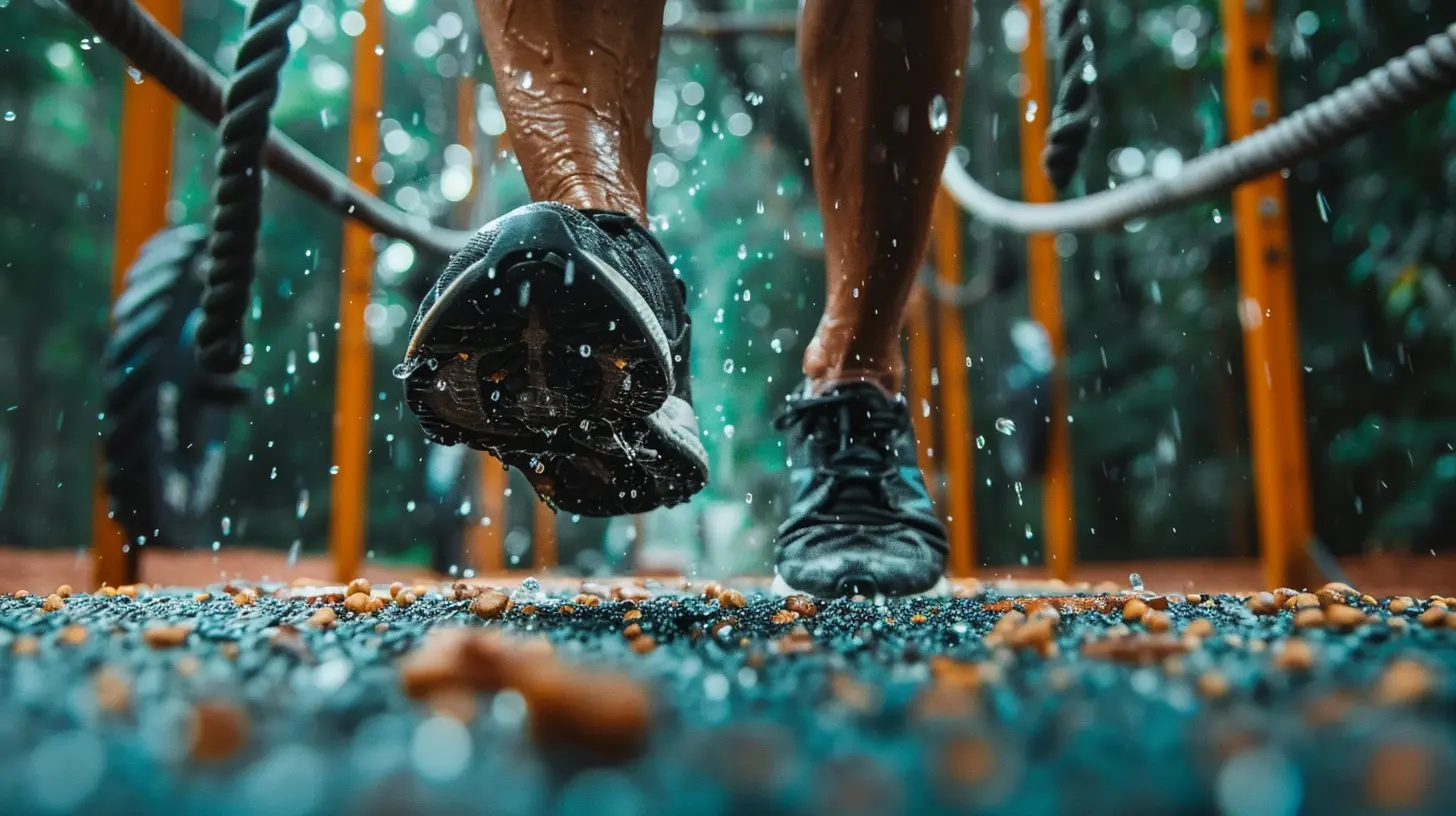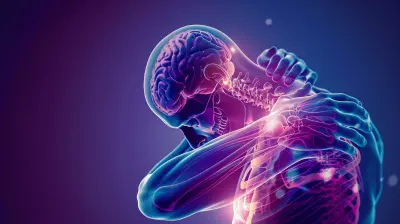The Science Behind Muscle Recovery: What You Need to Know
15 June 2025
Let's be honest—working out is tough. You push your limits, sweat buckets, and end up feeling like a spaghetti noodle after leg day. But here’s the real kicker—improvements don’t happen while you’re pumping iron or sprinting on the treadmill. Nope. The magic? It happens after, when you're resting. That's where muscle recovery steps into the spotlight like the unsung hero it is.
If you’re wondering why you're sore after a workout, how your body repairs itself, or how to bounce back faster—yup, you're in the right place.

Why Muscle Recovery Is a Big Deal
Let’s kick things off with the basics. What even is muscle recovery? In short, it’s your body’s way of fixing the tiny tears that happen in your muscles when you exercise. That might sound scary, but it’s 100% normal! These microtears are what actually trigger your body to rebuild muscle stronger and more resilient than before.Think of it this way: Your muscles are like remodeling a house. You break a bit here, hammer a bit there, and eventually, you end up with a nicer, sturdier version. But just like you wouldn’t renovate your kitchen overnight, your muscles need time, tools, and TLC to recover properly.
The Two Sides of the Recovery Coin
Muscle recovery isn’t just about chilling on the couch and hoping for the best. Nope. It’s a combo of passive recovery (like sleep and rest) and active recovery (think light movement, foam rolling, or low-intensity exercises). Both are super important, and when balanced well, they help you train smarter, perform better, and avoid injuries. Win-win-win!
The Science-y Stuff: What Happens When You Work Out?
Let’s nerd out a little—but don’t worry, we’ll keep it digestible.When you exercise, especially when lifting weights or doing resistance training, you’re creating microscopic damage in your muscle fibers. This kicks off a chain reaction in your body:
1. Muscle fibers tear slightly (in a good way).
2. Your body's inflammatory response kicks in.
3. Satellite cells (your muscle repair crew) rush to the scene and get to work.
4. They fuse to the damaged fibers, patch things up, and make the muscle stronger.
5. Voila! You’re now ready to lift heavier or run farther.
That’s why recovery isn’t just “optional.” It’s the MVP of your fitness journey.
Soreness vs. Injury: Know the Difference
Look, feeling sore is one thing. Limping around for days or feeling stabbing pain? That’s a whole other story. So how can you tell if it’s just DOMS (Delayed Onset Muscle Soreness) or an actual injury?| Soreness (DOMS) | Injury |
|----------------|--------|
| Sets in 24–72 hours later | Happens instantly or shortly after exercise |
| Feels like dull, achy tightness | Feels sharp, stabbing, or swollen |
| Improves with movement/stretching | Worsens with movement |
| Fades within a few days | Can persist or get worse over time |
If it feels like “Oof, that was a tough workout,” you’re good. If it feels like “Uh-oh, I broke myself,” get it checked out.
How Long Does Muscle Recovery Take?
Ah, the golden question! Muscle recovery time isn’t one-size-fits-all. It depends on several factors:- Workout Intensity: The harder you go, the longer you'll need to rest.
- Experience Level: Newbies tend to need more time compared to seasoned gym-goers.
- Sleep & Nutrition: If you're skimping on either, your recovery can drag.
- Age & Genetics: Yep, your biology has a say in this too.
Generally speaking:
- Light activity: 24–48 hours
- Moderate-high intensity: 48–72 hours
- Heavy resistance training or new workouts: Up to 5 days
If you're still sore beyond that? Time to reassess your recovery game!
Top Muscle Recovery Methods (That Actually Work)
Let’s get practical. Here’s what you can do to help your muscles bounce back faster and keep coming back for more.1. Sleep Like a Champion
Seriously, don’t underestimate the power of sleep. Your body does most of its repairing at night, especially during deep sleep stages. Aim for 7–9 hours if you want your muscles to recover properly (and your brain to function like a normal human being).2. Hydration Is Non-Negotiable
Water is the unsung hero of recovery. It helps flush out toxins, reduces inflammation, and keeps your joints lubricated. Dehydration can slow down recovery big time, so keep that water bottle handy.3. Nutrition: Fuel the Repair
What you eat after a workout is just as important as what you do during it.- Protein: Your muscle’s best friend. Aim for 20–30g post-workout to kickstart recovery.
- Carbs: They help replenish the glycogen your muscles used up.
- Fats: Don’t fear them—healthy fats aid in reducing inflammation.
Some winning post-workout snacks? Greek yogurt with fruit, a smoothie with whey protein, or eggs with whole-grain toast.
4. Active Recovery: Move to Improve
Ever tried to sit still after leg day and then couldn’t walk the next day? That’s because moving helps. Light activities like walking, cycling, or yoga increase blood flow, which speeds up the healing process.5. Foam Rolling & Stretching
Grab that foam roller and treat your muscles to a little self-massage party. Foam rolling helps release tightness and break up scar tissue. Top it off with some slow stretching to improve flexibility and reduce stiffness.6. Cold Therapy (Ice Baths, Cryotherapy)
Feeling brave? Cold therapy can reduce inflammation and muscle soreness big time. An ice bath might feel like a medieval torture method in the moment, but the recovery benefits are real.7. Supplements (If Needed)
While food should always come first, some supplements can aid in recovery:- Whey protein: Quick and convenient.
- BCAAs: Can reduce muscle soreness.
- Magnesium: Helps relax muscles.
- Omega-3s: Anti-inflammatory goodness.
Always talk to a healthcare professional before jumping on the supplement train, okay?
Common Recovery Myths (Busted!)
Before you go icing your entire body or overloading on protein shakes, let’s clear up some common myths.❌ “No pain, no gain.”
Pain isn’t an indicator of a good workout. You can absolutely make progress without hobbling around the next day.❌ “You need to train daily to see results.”
Muscles grow during rest. Overtraining can actually set you back.❌ “Stretching prevents soreness.”
Stretching helps with flexibility but doesn’t magically erase DOMS. Combine it with other methods for best results.❌ “Protein shakes are a must.”
They’re convenient, sure. But you can get all your recovery nutrients from whole foods if you prefer.Listening to Your Body: The Ultimate Recovery Hack
At the end of the day, your best recovery tool is...you. Listen to your body. If you’re constantly sore, tired, or irritable, your body’s waving a giant red flag. Rest days aren’t lazy—they’re strategic. Taking time off doesn’t mean you’re slacking. It means you're respecting your body enough to let it rebuild stronger.Final Thoughts: Work Hard, Recover Harder
Muscle recovery might not be the flashiest part of fitness, but it’s where the real gains happen. It’s the backstage crew making the show possible. You can lift all the weights in the world, but without proper recovery, you’ll plateau—or worse, burn out.So, give your body the love it deserves. Sleep well, eat smart, stretch like a cat, and don’t be afraid to take it easy when needed. Your muscles will thank you—and reward you with strength, endurance, and maybe even a six-pack if you’re lucky!
Here’s to training and recovering like a pro.
all images in this post were generated using AI tools
Category:
ExerciseAuthor:

Angelo McGillivray
Discussion
rate this article
2 comments
Jonah Kelly
Muscle recovery is crucial for optimal performance and injury prevention. Understanding the physiological processes involved—such as protein synthesis, inflammation, and rest—can enhance recovery strategies. Incorporating proper nutrition, hydration, and sleep into your routine can significantly improve muscle repair and overall fitness outcomes.
October 7, 2025 at 3:19 PM

Angelo McGillivray
Thank you for your insightful comment! You’ve highlighted key aspects of muscle recovery that are essential for athletes and fitness enthusiasts alike.
Thalwen Hensley
Great article! Understanding muscle recovery is essential for optimizing our fitness journeys. This insight not only helps us train smarter but also promotes overall well-being. Keep up the fantastic work!
June 20, 2025 at 3:17 AM

Angelo McGillivray
Thank you for your kind words! I'm glad you found the article helpful. Optimizing muscle recovery is indeed crucial for our fitness goals!


